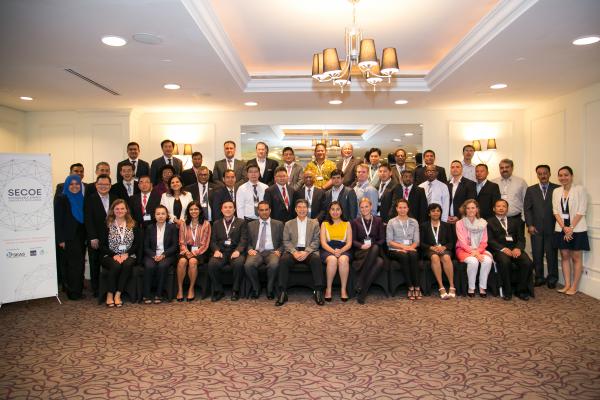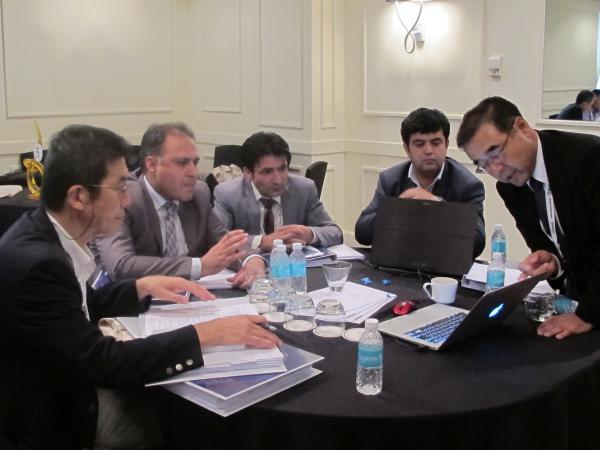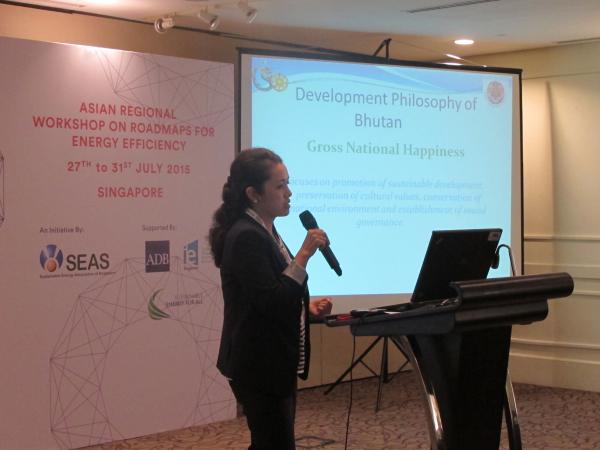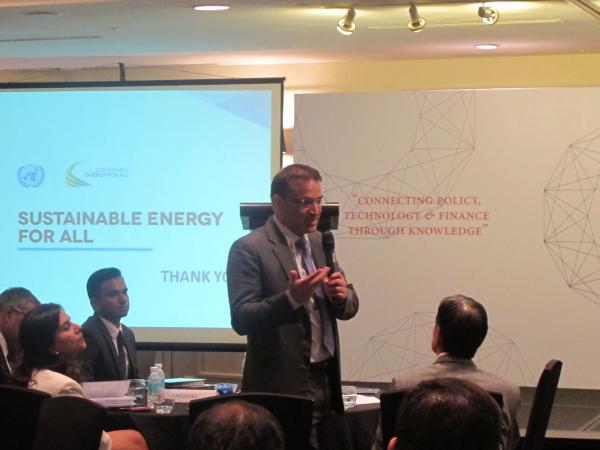News
Policy makers play a big role in accelerating the adoption of sustainable energy and increasing energy access, thus the very first workshop of the Sustainable Energy Centre of Excellence was held in Singapore from the 27 - 31 July. The workshop was organised by the Sustainable Energy Association of Singapore, and supported by the Asian Development Bank, IE Singapore and the Sustainable Energy for All Initiative.
Kow Juan Tiang, Group Director, Environment and Infrastructure Solutions Group, International Enterprise Singapore, said in his opening remarks of the workshop that the Sustainable Energy Centre of Excellence “represents a platform to share Singapore’s experience with regional participants and establish connections for potential collaborations across various sustainable energy areas”.
The workshop saw 22 policy makers from 10 countries attend: The Islamic Republic of Afghanistan, Bhutan, Cambodia, Cook Islands, Fiji, Indonesia, Mongolia, Nepal, Timor Leste, and Vietnam. These were representatives from the various energy and electricity authorities who were keen to develop and implement an energy efficiency roadmap for their home countries. We also had 27 resource speakers such as from Asian Development Bank, International Partnership for Energy Efficiency Cooperation, World Bank and Copenhagen Centre on Energy Efficiency coming from around the world sharing their knowledge and expertise with the participants.
The topics presented were:
- Day 1: Introduction to Energy Efficiency and Key Partners
- Day 2: Finance
- Day 3: Standards
- Day 4: Country case studies from Singapore and Japan, and a site visit to the United World College of Southeast Asia @ Tampines

Each country came up with a draft roadmap and on the 5th day of the workshop, presented their roadmaps to the entire group. There were many good presentations and as the participants learned from the speakers, the speakers also gained some country specific insights from the participants.
TUB SUD PSB also sponsored a welcome dinner for the participants on the first night at the Halia at the Singapore Botanic Gardens, a newly crowned UNESCO World Heritage Site. The participants enjoyed the dinner immensely and were able to interact with each other, the speakers, representatives from TUV SUD, and the supporting partners in a casual setting.
Some of the key takeaways from the participants at the end of the workshop that would enable them to draft and implement an energy efficiency roadmap were:
- They need to build the technical capability in their country and train their people in relevant energy efficiency topics.
- They need to set and implement EE targets, standards, labelling, building codes and policies
- They need to convince their governments that energy efficiency needs to be one of the priorities in the budgeting of the country, as it is a solution to some of the major issues they need to deal with.


Overall, the workshop was quite well received. The site visit to the United World College of Southeast Asia was definitely a main highlight and the participants felt that seeing this case study in energy efficiency in person was a great experience for them.
Mr. Roohul Amin, Director, Public Policy Formulation, Administrative Office of the President, Islamic Republic of Afghanistan, who was one of the participants of the workshop, said, “We’re building a new women’s only university in Afghanistan, and the site visit to the United World College of Southeast Asia was very timely and extremely useful for us. We are inspired by every detail of UWC energy efficient architecture, design, and EE practices and would love to incorporate – most if not all, such energy efficient elements in our new university”.
Many look forward to future topics of the Sustainable Energy Centre of Excellence on renewable energy and Energy Access, and appreciate the training and knowledge assistance that the centre will be able to provide them. The Sustainable Energy Centre of Excellence is not only a capacity building centre but also a repository of knowledge and resources. Thus SEAS hopes that through the centre, the policy makers will be able to meet more people who can advise them in developing and implementing the roadmap for their countries, and fostering more public private partnerships to accelerate energy efficiency.
Save
